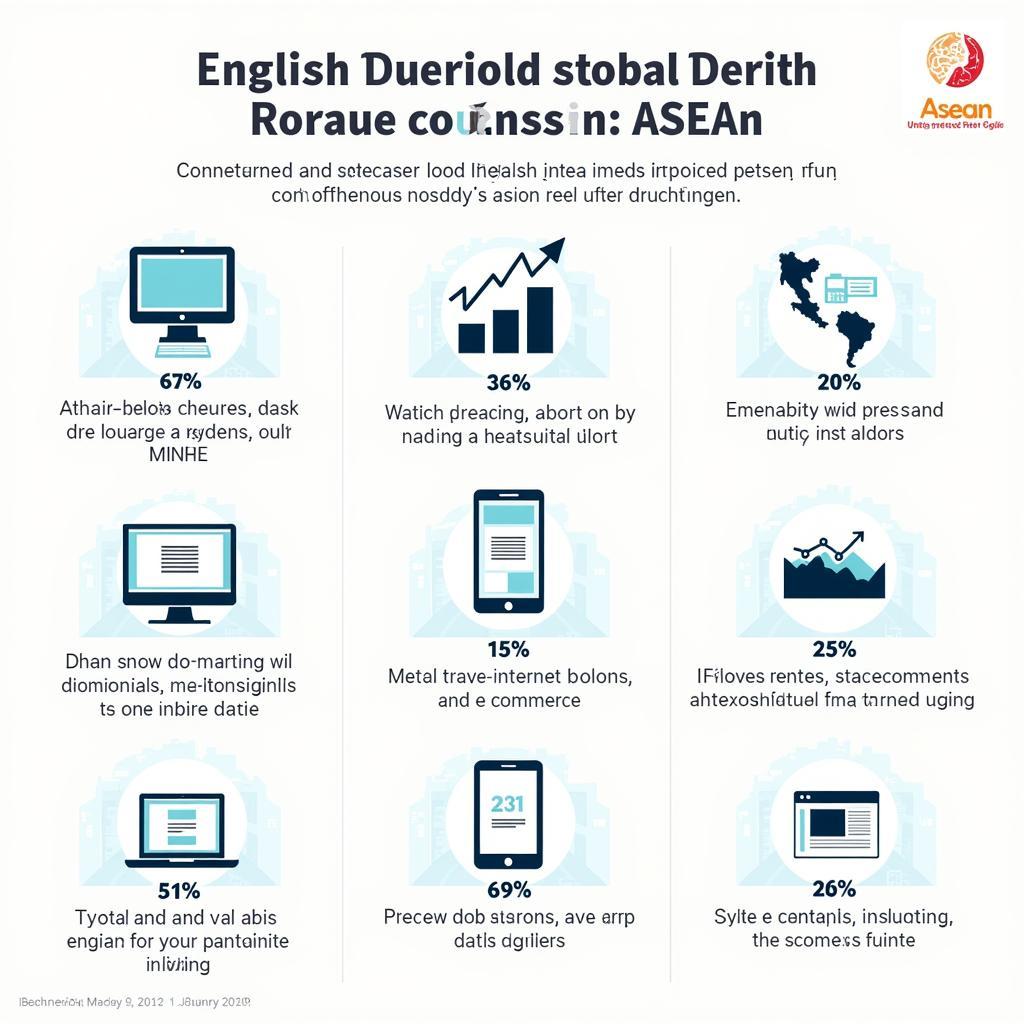The Association of Southeast Asian Nations (ASEAN) is a diverse region with a rich tapestry of cultures, languages, and histories. Within this dynamic landscape, the “ASEAN Model” has emerged, embracing English as a key driver of regional integration and global engagement.
The Role of English in the ASEAN Economic Community
English plays a pivotal role in fostering economic growth and connectivity within ASEAN. As the designated working language of the ASEAN Economic Community (AEC), English facilitates seamless communication and collaboration among member states.
-
Breaking Down Language Barriers in Business: With English as a common language, businesses across ASEAN can engage in trade negotiations, establish partnerships, and navigate legal frameworks with greater ease. This linguistic common ground has been instrumental in promoting intra-ASEAN trade and attracting foreign direct investment.
-
Enhancing Workforce Mobility: English proficiency equips ASEAN citizens with a competitive edge in the global job market. It opens doors to diverse career opportunities both within the region and internationally, fostering a highly skilled and mobile workforce.
 ASEAN Business Meeting
ASEAN Business Meeting
English as a Tool for Cultural Exchange and Understanding
Beyond its economic significance, English fosters cross-cultural understanding within ASEAN. It serves as a bridge connecting diverse communities and promoting dialogue.
-
Facilitating Educational Opportunities: Many ASEAN countries have embraced English as a medium of instruction in schools and universities. This has not only enhanced access to global knowledge but has also created opportunities for student exchanges and collaborations, enriching the educational landscape.
-
Promoting Tourism and People-to-People Connectivity: English facilitates communication between tourists and locals, enhancing the travel experience and promoting cultural exchange. From navigating local markets to engaging in meaningful conversations, English helps break down barriers and fosters connections.
 ASEAN Cultural Festival
ASEAN Cultural Festival
The Future of English in ASEAN
-
Embracing Linguistic Diversity: While English serves as a unifying force, ASEAN recognizes the importance of preserving linguistic diversity. Member states continue to promote their national languages and cultural heritage.
-
Preparing for the Digital Age: As technology continues to shape the global landscape, English proficiency is becoming increasingly crucial in the digital age. ASEAN is committed to equipping its citizens with the necessary digital literacy skills to thrive in the digital economy.
 ASEAN Digital Innovation
ASEAN Digital Innovation
Conclusion
The “ASEAN Model” recognizes English as a strategic asset for regional integration, economic growth, and global engagement. By embracing English as a unifying force, ASEAN is building a more connected, prosperous, and harmonious region.
FAQs
-
Is English an official language in all ASEAN countries? While English is not an official language in all ASEAN countries, it is widely spoken and recognized as the working language of the ASEAN Economic Community.
-
How does English proficiency vary across ASEAN member states? English proficiency levels vary across ASEAN countries. Singapore and the Philippines have a high level of English proficiency, while other countries, such as Myanmar and Laos, have lower levels.
-
What are some challenges associated with using English as a common language in ASEAN? Challenges include varying levels of English proficiency among ASEAN citizens and the potential for miscommunication.
Need Support?
For inquiries or assistance regarding Asean Media, please contact:
Phone Number: 0369020373
Email: aseanmediadirectory@gmail.com
Address: Thon Ngoc Lien, Hiep Hoa, Bac Giang, Vietnam.
Our dedicated customer support team is available 24/7 to assist you.